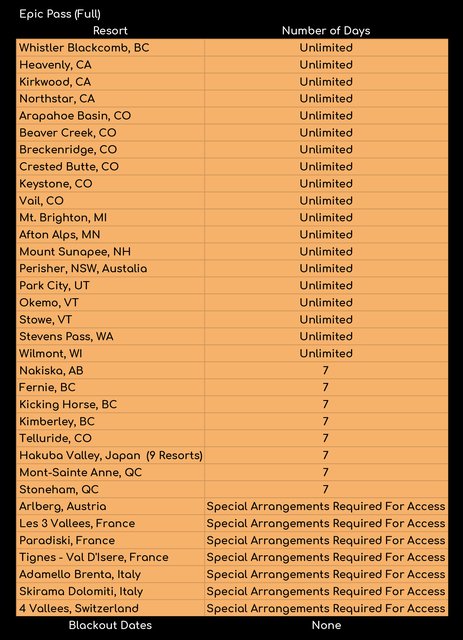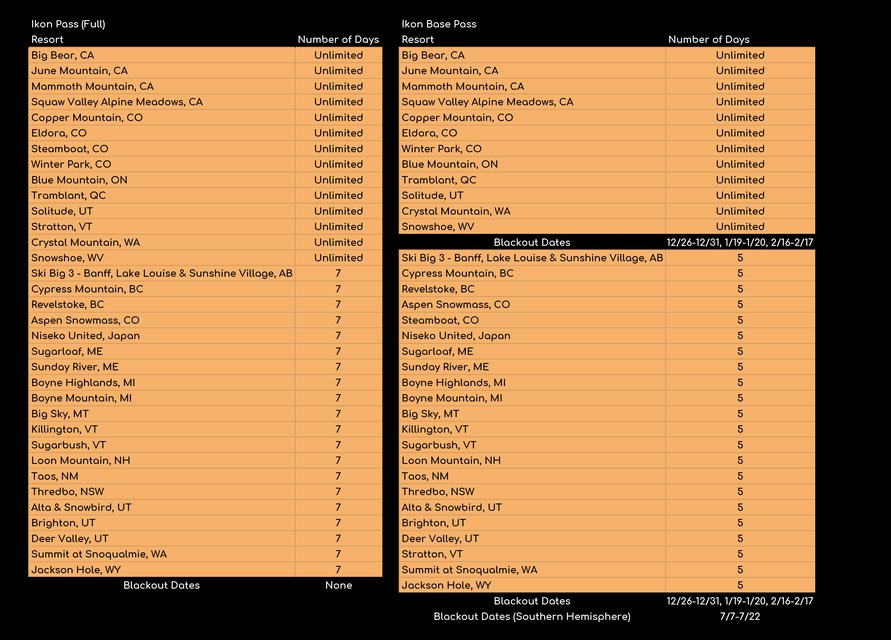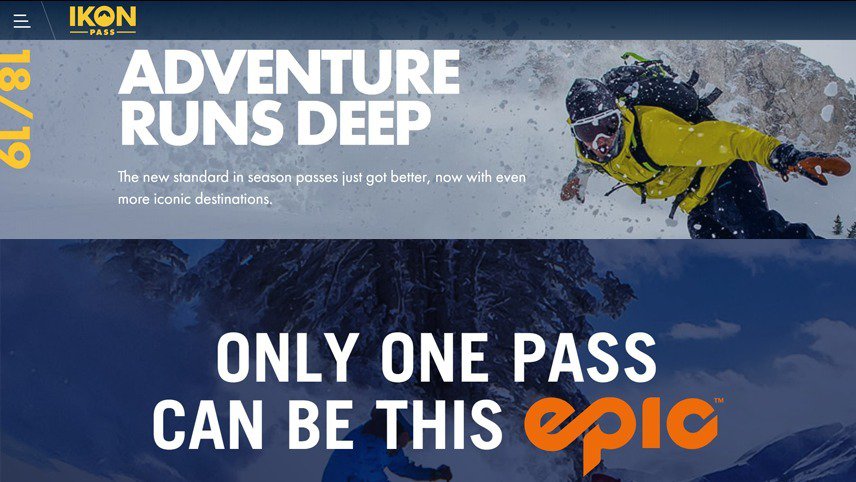Skiers have witnessed monumental changes to the ski resort landscape over the past two years. Sure, the snow they slide on will remain the same, but the way skiers access the mountains is changing. News of resort acquisitions and new partnerships has been a near daily barrage. Locals may be burying their heads in the sand, scared of hoards of tourists to their mountains, but for the average skier, these mega multi-resort passes mean easy destination ski trips like never before. With the dust finally beginning to settle, we took a look at which areas are now accessed by which passes? There are now three main pass options, all at under $1000 each, giving access to a total of 70 resorts around the globe. Check out our full breakdown below.
The Epic Pass

Vail Resorts’ Epic Pass is not new, but its scale has transformed thanks to a recent shopping spree. Several new mountains have been brought into the fold including Crested Butte, Stevens Pass, and Okemo. These purchases join the previous landmark acquisitions of Park City, Whistler and as well as others to create one pass with unprecedented unlimited access to 19 resorts, a further 7 days each at 8 additional areas and special package deals to 7 more.
The Epic Pass remains the standard for Colorado skiers, with the densely packed Vail, Breckenridge, Keystone, Beaver Creek, and A Basin being some of the most popular resorts in Colorado. They might be popular with the punters but park skier's eyes may well light up at some of those names, with Keystone and Breck boasting two of the best parks in the world. Add Whistler, Northstar, and Park City to the list and you have a pretty stellar lineup of parks, especially for skier looking for big jumps, well kept pipes, and slopestyle course sized features.
There's some good pow options there too and the addition of the 7 days in the Hakuba Valley in Japan as well as several Interior BC (Canada) resorts make the pass a nice pick for those who love the fluffy stuff too. For the typical Newschoolers member, the access to European resorts is likely a throwaway however due to the "special arrangements," AKA expensive lodging packages required to access the resorts.
At early bird pricing, the Epic Pass comes out at $899. There are cheaper regional options available, too.
The Ikon Pass

From the newly created Alterra Mountain Company a serious and direct challenger to the Epic Pass has emerged, the Ikon. The Ikon Pass features several legendary names in the skiing world for Newschoolers members and Jerrys alike. Resorts like Mammoth, Squaw Valley, Alta, Revelstoke, Jackson Hole, and Aspen headline this festival. However, the lack of unlimited access at some of these will make the Ikon less attractive to locals.
The two tiers of the Ikon pass offer different price points with slightly different access to the same set of 33 resorts. The full Ikon provides unlimited access to 13 resorts with 7 unrestricted days each at of another 20 areas. Ikon’s cheaper base pass has a smaller list of 11 unlimited resorts and 5 days with blackouts for the remaining 22.
Some slightly smaller, yet equally good parks are found at these areas, NS favorite Brighton just joined the pass for example with other standout park destinations including Copper Mountain, Mammoth, and Bear Mountain.
Powder and big mountain riders will find options on the Ikon no matter where the snow is falling. Revelstoke, Squaw Valley, Solitude, Big Sky, Banff, and Niseko United in Japan all have killer riding and deep snowfalls.
The full Ikon pass costs $999, while the base pass costs $699.
Mountain Collective

While not a traditional season pass like the Epic and Ikon, the mountain collective does offer 2 days a piece at 17 different resorts. This makes for a great “road trip” pass for a couple different loops, and at $449, it is by far the cheapest of the bunch.
----
Which pass are you getting? Was your mountain just acquired or added to one of these passes? Does that make you excited for the access or scared of the crowds? Let us know in the comments.


Comments